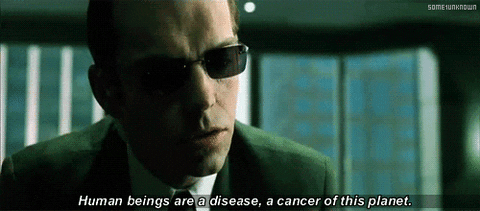As COVID-19 continues to wreak havoc across the globe, there has been an unexpected but not unwelcome outcome. The environment has been getting noticeably cleaner and clearer. With factories closing down and people staying indoors and not driving to work, air pollution has decreased. According to China’s Ministry of Ecology and Environment, the Hubei province’s “good quality air days” increased 21.5% last month, compared to last year.
And it’s not just in China. Air quality has improved across Italy and other countries with stricter social distancing policies. The canals of Venice have cleared up, and wildlife has re-emerged.
Fluctuation of nitrogen dioxide emissions across #Europe from 1 Jan until 11 Mar 2020, using a 10-day moving average & data from @CopernicusEU #Sentinel5P. pic.twitter.com/lig1E3iivJ
— Mark Drinkwater (@kryosat) March 13, 2020
Here’s an unexpected side effect of the pandemic – the water’s flowing through the canals of Venice is clear for the first time in forever. The fish are visible, the swans returned. pic.twitter.com/2egMGhJs7f
— Kaveri 🇮🇳 (@ikaveri) March 16, 2020
Even the dolphins are back at the shore in some parts of Italy, because ferries and other boats no longer disturb them.https://t.co/b4dpmOPYPt
— Gigi ☯️ (@dergigi) March 17, 2020
Boars in the middle of my hometown, dolphins in the port of Cagliari, ducks in the fountains in Rome, Venice canals have now clean water full of fishes. Air pollution dropped. Nature is reclaiming its spaces during quarantine in Italy. #COVID19 #COVIDー19 pic.twitter.com/dr6QILfF9V
— Francesco Delrio (@Cosodelirante) March 15, 2020
Fei Liu, an air quality researcher at NASA’s Goddard Space Flight Center, noted the reduced levels of nitrogen dioxide emissions, which can be seen via satellite images. “This is the first time I have seen such a dramatic drop-off over such a wide area for a specific event,” they said, “I am not surprised because many cities nationwide have taken measures to minimize the spread of the virus.”
It’s like that scene in Avengers: Endgame, where Steve Rogers tells Natasha Romanoff that he saw a pod of whales swimming in the Hudson river, because the water is cleaner with no ships and 50% fewer people. With all that’s going on, I couldn’t help but wonder (cue Sex and the City voice-over): was Thanos right?

(Marvel)
Is the coronavirus a worldwide accounting of humanity? Is nature seeking revenge for centuries of damage and chaos we’ve caused on the planet? Is humanity the virus and COVID-19 the cure?

(Warner Bros.)
The answer, of course, is no. Humanity is suffering under this outbreak, and will continue to do so. Whether or not this is some form of cosmic reckoning depends entirely on your belief systems. And this brief respite for the environment will only get worse once the virus fades and life goes back to normal.
This is known as “revenge pollution,” where businesses put out more pollution in a scramble to boost the markets. Li Shuo, a senior climate policy adviser for Greenpeace East Asia, described it as “There might be a round of economic stimulus which would inject cheap credits to heavy industries in China, and as a result of that we might see increasing pollutants and also carbon emissions in the second half of this year.”
But it doesn’t have to be this way. Working together, we can make a major change in the climate and make concrete steps towards a cleaner environment. It’s not an impossible goal to reduce greenhouse gasses and fight for a cleaner planet. This pandemic could kick-start the next global wave of environmentalism, and that is something worth fighting for.
(via CNN, image: Marvel Entertainment)
Want more stories like this? Become a subscriber and support the site!
—The Mary Sue has a strict comment policy that forbids, but is not limited to, personal insults toward anyone, hate speech, and trolling.—










Published: Mar 17, 2020 03:37 pm